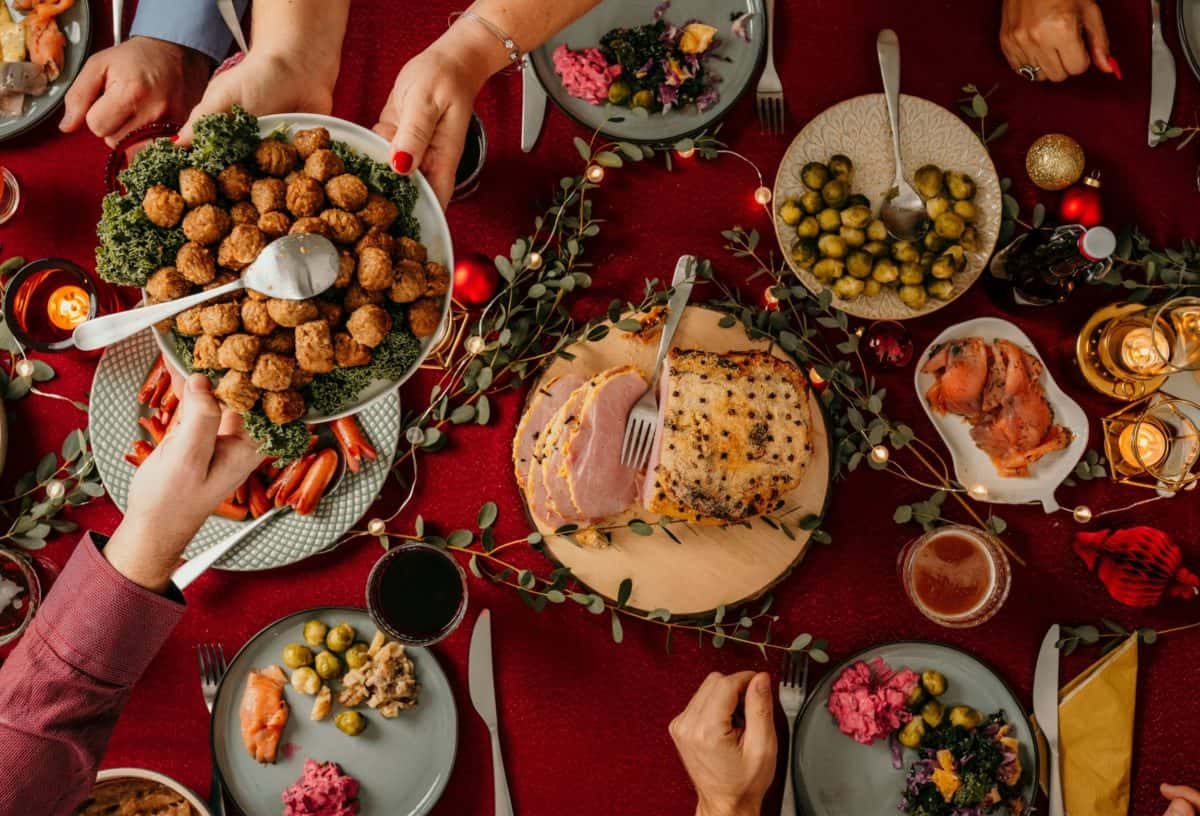
It’s that time of the year when life commitments such as work, or school are winding up and our calendars are getting more chock-a-block with soirees to celebrate the end of another long year. As we slug our way to the year’s finish line with promises of rest, relaxation and possibly travel, we understandably lose momentum to start or continue our healthy patterns of eating.
With the holiday season in full swing, we often find ourselves drinking a few more glasses of bubbles or an extra cocktail here and there. Combining this with feasts of richer foods, an abundance of graze-worthy nibbles and longer days lazing by the pool, it sets the perfect scene for festivities with loved ones in Australia.
So why do these annual festivities become dampened with feelings of dread and guilt?
A common question that our team receives throughout the month of December and January is “how do I tackle Christmas and New Year’s”?
To be completely frank, we never know how to answer this question because after all, we’re human just like you and we all deserve to let our hair down after the year that’s been. To ease your stress, we want to share with you a few of our personal tricks and strategies to help you navigate whatever celebrations you have planned.
Balance your plate
Many clients are often worried about ‘Portion-control’ at this time of year. The festive foods on offer are so morish, it’s easy to feel like you’ve overconsumed if we’re not balancing our plate adequately. One useful tool I like to use is “The Plate Model” which I am sure has been drummed into you at some point throughout your life but hear me out first.
If we’re thinking about the components of the plate model (vegetables, protein, carbohydrates and fats) the Aussie Christmas food spread normally resembles this is some way. We often just require some minor tweaks and adjustments to ensure that it complements the actual plate model.
As a first step when dishing up your meal, can you get ½ plate of vegetables? Normally this would make up roughly two serves (1 cup fresh vegetables = 1 serve and ½ cup cooked vegetables = 1 serve). Vegetables are high in fibre and therefore play an integral role in gut health, keeping us feeling full and are packed with vitamins and minerals.
Keeping the goal small by aiming for 50% vegetables can be helpful in reducing that pressure placed on yourself to eat ‘perfectly’ this time of year. It also gives you the opportunity to get creative with your vegetable sides and salads.
Don’t let yourself get too hungry:
Saving ourselves prior to our holiday events or special meals can result in a blowout, which often involves over-eating to the point of combustion (not really but you know what I mean). Getting to the point when you’re THAT hungry can make it harder for you to make any decision, let alone a food-related one.
Regulate your appetite by aiming to eat regularly throughout the day. You may choose to have lighter or smaller meals to save space for the really good stuff but prioritising a regular eating pattern can absolutely help you combat the hangries.
Another tip to help with regulating hunger is to prioritise protein-rich foods. Protein plays a massive role in appetite management to keep us in tune with our hunger and fullness cues. This may look like having fruit and a high protein yoghurt for breakfast on Christmas morning or seedy toast with smashed avocado and two boiled eggs before an event.
Go “two for two”:
By two for two, I mean alternating between alcohol and water. Now, this is not an innovative tip, but it is a great way to stay hydrated and prevent the overconsumption of alcohol. Ideally, this will prevent experiencing a heavy head the next morning. Aiming to have a few alcohol-free days over the festive period is also a great way to stay on track with your health goals and your liver will also thank you for it! Alternatively, aiming for 3-4 standard drinks on any occasion is a good strategy to take which is also aligned with national alcohol recommendations.
Overcoming the hangover:
Okay so, going for two and two didn’t quite cut it and you’ve wound up with a nasty hangover. That’s ok, we can deal with this. My first step would be to pour yourself a glass of water. Then have another glass, and then another glass after that. Basically, alcohol is a diuretic which means it speeds up the rate at which our bodies lose fluid. Combine this with some other unpleasant side effects after a big night of drinking (*cough* vomiting or diarrhoea) and you can imagine your body is crying out for fluid replenishment.
Move your body:
Taking the time out to move your body can provide you with mood-boosting benefits to help de-stress. Regular exercise has also been proven to help people make better food choices. Make the goal small, even if it is a 10-minute YouTube workout or a morning dog walk. You can also take pleasure in the fact that it will be easier to get back into your normal workout routine when the holiday season is over.
The MOST important tip:
My last but most important tip is to be kind to yourself and use this period to rest, relax and recharge. Reminding yourself that the holiday season only comes around once a year is a good enough reason, in my opinion, to enjoy the festivities.
However you choose to celebrate, the team at The Healthy Eating Clinic hope you enjoy yourself immensely and we want to wish you the very best. We can’t wait to help you with your nutrition-related goals.
If you are worried about the holidays and you’d like further help with your nutrition, please reach out to our dietetics team:



